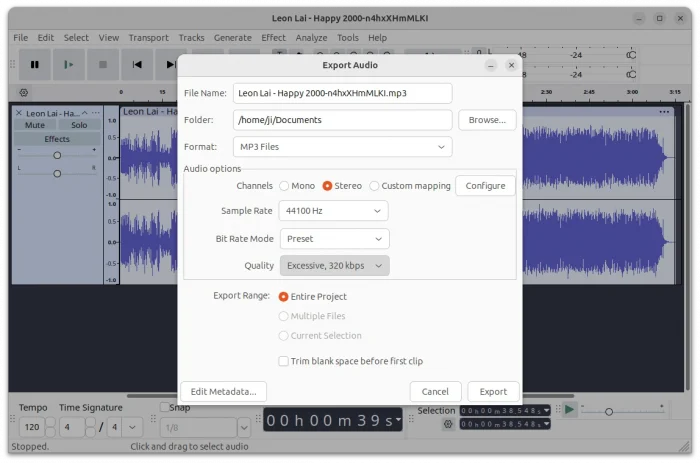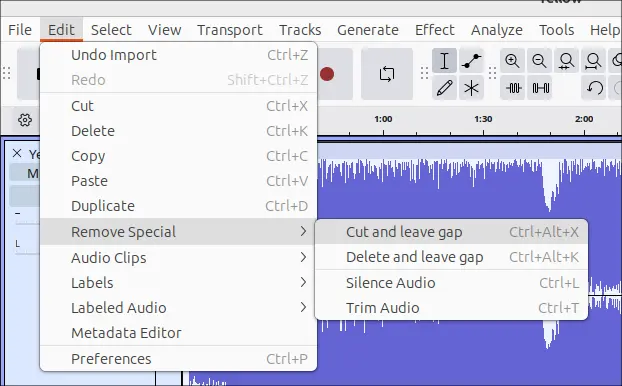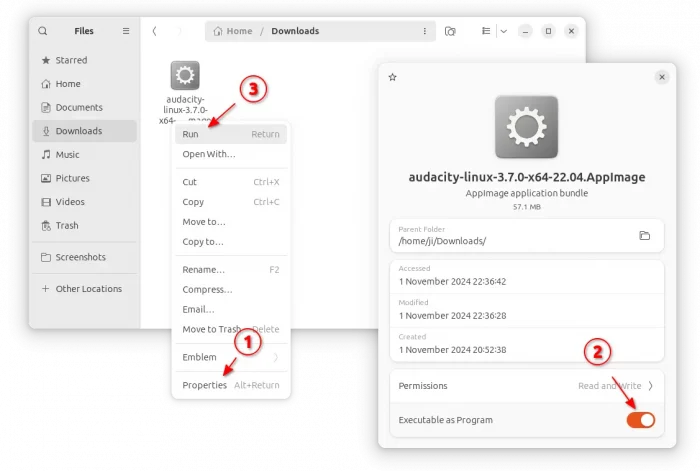The popular free open-source Audacity audio editor announced new 3.7.0 release few days ago!
Unlike v3.5.0 or v3.6.0, this is NOT a feature release but maintenance updates with many bug-fixes and performance improvements. While, the developers are working on next major Audacity 4.0.
The new release improved contrast in the light theme. Which, fixed the issue that the focus border was hard to discern as it was blue against a blue-based background.
To not make disabled and neurodivergent people uncomfortable while they use Audacity, it renamed the word “Insane” in the Quality drop-down menu in the Export Audio dialog with “Excessive“.
The release also re-named “Split Cut” and “Split Delete” menu option to “Cut and leave gap” and “Delete and leave gap“, removed unnecessary sample rate probing during startup, which can improve startup time on systems with many audio devices. And, adding, removing, replacing and reordering of effects are now undoable.
Audacity 3.7.0 also fixed a database sometimes not being compacted issue. Which causes very much bigger data size, and long time to discard undo/redo history.
Other changes include properly handle non-standard character in name of project for saving to cloud, pasting clips no longer moves clips on other tracks if “editing clips can move other clips” is enabled, as well as:
- Fixed AppImage launching, and CI Arch Linux build issue.
- Fixed misaligned close icon for the spectrogram in Multi-View
- For MacOS, fixed that Preset information is available in AU plugins but not VST
- Fixed crash when trying to undo/redo adding and reordering of the effect on the master
- Fixed crash when making a stereo track from mono tracks is cancelled #7610
- Fixed importing opus file, which shifted left the first 882 samples.
How to Get Audacity 3.7.0
The software website provides official packages for Linux, Windows and macOS, which are available to download via the link below:
For Linux, it’s an universal .AppImage package. Just add “Executable as Program” permission from file Properties dialog. Then, user can click run the AppImage to launch the audio editor.
NOTE: Ubuntu since 22.04 does NOT support AppImage out-of-the-box. Run command in terminal (Ctrl+Alt+T) to enable:
sudo apt install libfuse2
For those who prefer the classic .deb package, I’ve upload the new release package into this unofficial Ubuntu PPA for Ubuntu 22.04, Ubuntu 24.04, and Ubuntu 24.10 on AMD/Intel and ARM platforms. The PPA package follows Debian/Ubuntu policy that disables network access for the app.
To add the PPA and install the .deb package, open terminal (Ctrl+Alt+T) and run the commands below one by one:
sudo add-apt-repository ppa:ubuntuhandbook1/audacity
sudo apt update
sudo apt install audacity
Audacity is also available to install as Flatpak package. It’s an universal Linux package format run in sandbox.















Do you think privacy is precious? Before downloading this 3.7.0 version of Audacity, I recommend searching the internet for a scandal around Audacity, when this open-source software, fruit of non-profit teamwork, was sold for-profit, to a company who wants to make money by spying on users. I am using Audacity 2.4.2 and have no such issues with companies spying on me. Newer is not always better!